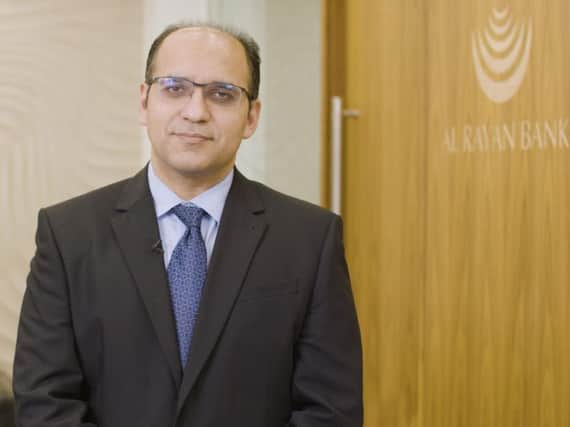A principled life should extend to your money - comment


Leading an ethically and environmentally conscious lifestyle has become an aspiration for many over the past few years.
According to research that Al Rayan Bank carried out with YouGov, almost every British adult (96 per cent) participates in some form of environmental activity, whether that’s recycling, taking reusable bags when shopping, or switching off electrical appliances when not in use, and Scottish consumers often lead the way in this regard.
Advertisement
Hide AdAdvertisement
Hide AdClearly, ethical and sustainability issues are rising up the agenda. We only need to look to the rising veganism trend, campaigns against climate change, and responses from retailers to consumer demands around reducing single-use plastic to see that.
However, these same principles have been relatively slow to manifest themselves in the finance sector. Indeed, according to our survey findings, almost four in ten British adults (37 per cent) believe that choosing ethical financial services is as important as recycling at home.
But worryingly, more than nine out of ten (91 per cent) of British adults who have a main bank or building society account do not know if their bank or building society currently invests in unethical sectors, and almost 40 per cent haven’t even heard of the terms “ethical banking” or “ethical financial services” at all.
When we look at Britain’s ethical banking hotspots there does unfortunately seem to be a north-south divide emerging, with Scotland deemed one of the regions least likely to have access to ethical banking. Our survey showed that Londoners were most likely to have been offered ethical financial services by their bank, with one in ten having this option presented to them, compared to just 4 per cent in Scotland and the North-east of England.
Involvement
Demand is clearly out there, but while the ethical finance industry has come a long way, it’s clear that the overwhelming majority of consumers throughout the UK, but particularly in Scotland, are still unaware of where their bank is investing their money.
And while more people could be paying attention to how their money is invested, banks also need to be doing more to involve their customers in the decision-making process.
As the UK’s oldest and largest ethical, Islamic lender, Al Rayan Bank focuses on banking activities that are in-keeping with the ethical values of Islam. Our customers’ money is only invested in relatively low-risk asset-backed activities, and never in highly speculative activities, or unethical industries such as gambling, tobacco, arms, pornography, or any commodity that isn’t backed by a tangible asset.
While these values cater for the beliefs of our Muslim customers, the ethical nature of Islamic banking also appeals to consumers of other faiths, and no faith at all. In fact, we currently estimate that more than a third of our customers are not of the Muslim faith and we expect to see this percentage grow as more people switch on to the concept of ethical banking.
Advertisement
Hide AdAdvertisement
Hide AdOne fundamental difference between Islamic and conventional banking is the absence of interest. This is because Muslims believe that interest (or riba) introduces unfairness into transactions that leads to inequality in society.
Performance
However, this does not mean that customers of Islamic banks don’t make a return on their savings – far from it. In fact, Al Rayan Bank has consistently featured on the UK’s best-buy savings charts for many years, often paying profit rates well in excess of well-known conventional banks.
Like all Islamic banks, we quote an expected profit rate (EPR) to our customers rather than a guaranteed interest rate. This is because with Islamic finance, any risk must be shared between all parties.
However, Al Rayan Bank has always achieved the profit rate quoted, and on some of its accounts often pays more. Additionally, Al Rayan Bank savers are fully covered by the UK Financial Services Compensation Scheme, which currently protects eligible depositors’ savings up to £85,000.
The challenge for all Islamic banks, then, is overcoming the misconception that banking with us is somehow riskier.
We therefore monitor our investments on a daily basis to ensure the EPR will be achieved. This profit is then shared between the customer and the bank and has proved extremely accurate, with the crucial difference here being that our products are in-keeping with ethical values.
The lack of awareness around ethical investing should be a wake-up call for financial services providers and for consumers.
Whether it’s the nature of your bank’s investments, whether or not they operate sustainably or have socially responsible values at their core, doing a bit of due diligence to see how your bank or building society uses your money should be as important as how often you recycle.
